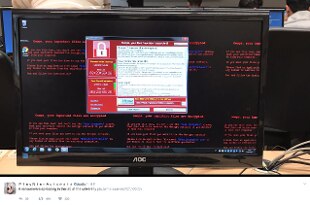Share
02 March 2021In 2020, the year of the pandemic, there is the negative record of cyber attacks: worldwide there were 1,871 serious ones in the public domain, 12% more than in 2019. Global damage is worth twice the Italian GDP.
10% of cyberattacks exploited the Covid-19 theme, with vaccine development also being targeted.
These are the data contained in the Clusit Report, the Italian Association for Information Security.
According to the authors, there are on average 156 serious attacks per month, the highest value ever recorded to date, with the negative record in December, in which 200 were detected.
According to Clusit, cybercrime - that is, attacks to extort money - was the cause of 81% of serious attacks globally in 2020.
Cyber-espionage activities make up 14% of the total with many of these activities related to the US elections, but also to the detriment of research bodies and companies involved in the development of vaccines against Covid-19.
The pandemic has characterized 2020 for the trend, methods and distribution of the attacks: 10% of these were Covid-19 themed with cybercriminals who exploited the situation.
Specifically in the healthcare sector, 55% of coronavirus-themed attacks were perpetrated for the purpose of cybercrime, with the purpose of espionage and information warfare in 45% of cases.
The attacks were mainly carried out using malicious viruses (malware in 42% of cases), among which the so-called ransomware - they limit access to the data contained on the infected device, requiring a ransom - used in almost a third of the attacks (29%).
Cybercriminals hit 47% of cases in the United States;
in 22% of cases in multiple locations, demonstrating the ability to hit geographically distant targets and multinational organizations in a widespread manner.
"The data show us once again that the continuous acceleration of cybercrime has an ever greater impact on our society", says Gabriele Faggioli, president of Clusit.
"The extraordinary growth of cyber threats, particularly in the last four years, has caught all the stakeholders of our digital civilization by surprise and now represents a 'tax' on the use of ICT at a global level that duplicates the value of GDP Italian estimated in 2020, considering the direct and indirect economic losses due to the theft of intellectual property ", adds Andrea Zapparoli Manzoni, co-author of the Clusit analysis.

